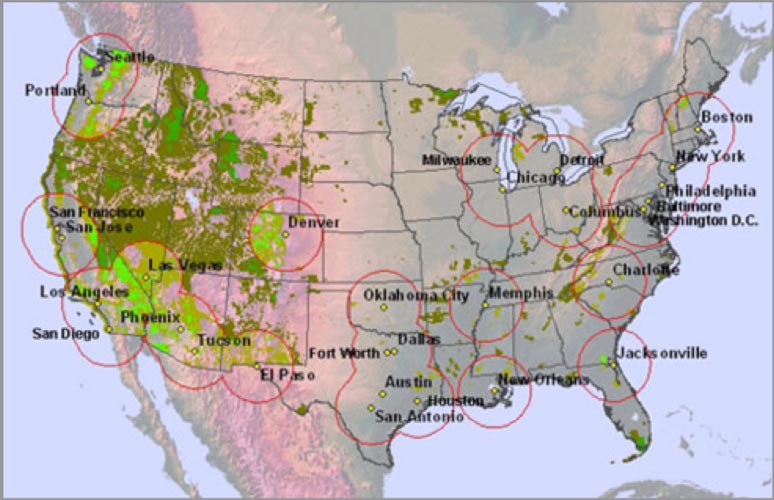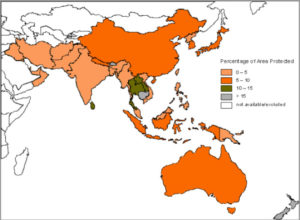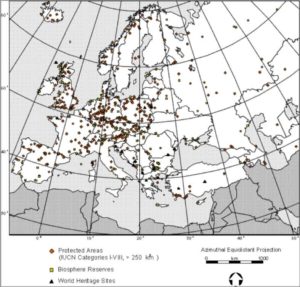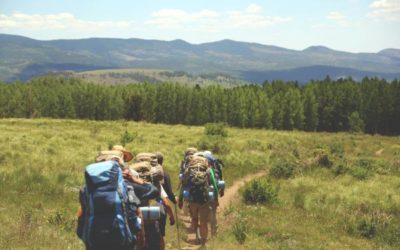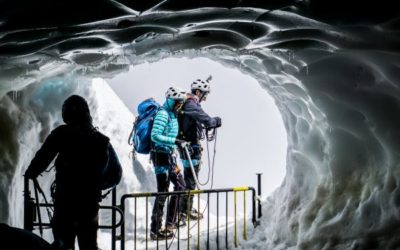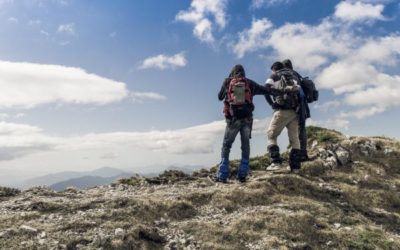URBANIZATION CREATES THE NEED FOR YOUNG PEOPLE TO HAVE OPPORTUNITIES TO GET OUT INTO GOD’S CREATION
One of the most significant macro developments in human civilization is the migration toward the cities in the past one hundred years. As of 2008 half of the world population is now living in cities. The urban population is growing three times faster than its rural counterpart. By 2030, three of every five persons will be living in urban areas. The whole range of human experience is shifting from a rural/agrarian civilization to an urban experience and mind set. For this reason it is all the more important to provide young people opportunities to enjoy the beauty of creation; where God’s fingerprints are naturally visible. Several astonishing statistics contribute to this concern and fuels our active pursuit to promote more ministries in the outdoors. According to a 2005 Christian Century report, one million people worldwide move to cities each week, 1 in 3 urban dwellers live in poverty as of 2007, and according to the United Nations estimate, 80% of South Americans live in cities (the highest rate in the world); 36% of them live in slums.
RECREATION USE IN NORTH AMERICA HAS INCREASED 10 TIMES IN THE PAST 40 YEARS
Wilderness.net has researched the use of wilderness in North America over the past four decades and their findings indicate that as America becomes more urbanized the hunger for wilderness experiences among Americans has also continued to grow. They conclude: “Recreational use of Wilderness has increased 10 times in the past 40 years and more than 12 million people now visit wilderness each year as of 2004…. Half of all wilderness areas are within a day’s drive of America’s 30 largest cities.” The map above illustrates the location of American wildlands and their proximity to cities. The red circles represent wilderness areas within 150 miles of one or more of America’s largest cities.
WILDERNESS USE ON A GLOBAL SCALE
McCloskey and Spalding provide a macro view of wilderness on a global scale. They write:
The findings suggest one-third of the global land surface still is wilderness…. However, 41% of the amount is in the Arctic or Antarctic and 20% in temperate regions. Most of the settled continents are between one-fourth and one-third wilderness. Europe being the exception. Only a small share of this wilderness has been given protected status. [Related link to a wilderness ministry in Italy added.]
In order for young people to be able to enjoy untrammeled pristine wilderness experiences, transportation will be a key issue to be addressed as well as extra time for travel for volunteer leaders who organize these experiences in the outdoors for their groups of young people.
A SNAPSHOT OF WILDERNESS ACCESS AROUND THE WORLD
The United Nations Environment Programme conducted an extensive study called Global Environment Outlook-1 where they analyzed several global trends emerging from a diverse sampling of regions. This study highlights several key global and regional environmental concerns; prioritizing them for the current situation as well as the future. Here are a few of the more poignant observations:
-The use of renewable resources-land, forest, fresh water, coastal areas, fisheries, and urban air-is beyond their natural regeneration capacity and therefore is unsustainable.
-Natural areas and the biodiversity they contain are diminishing due to the expansion of agricultural land and human settlements.
-Rapid unplanned urbanization, particularly in coastal areas, is putting major stress on adjacent ecosystems.
SPIRITUAL IMPLICATIONS
The remedy they prescribe is worth mentioning here because it has surprisingly spiritual implications:
To achieve advances in one or all of these areas of action, a change in the ‘hearts and minds’ of everyone will be required….
I remember one of my mentors, Peter Kuzmic making the comment, “The world has questions and the church has the answers.” For this reason I believe Christian outdoor leaders are poised to impact the hearts and minds of their participants. This will inevitably influence the communities where their participants live. Christian outdoor leadership is on the cutting edge of leadership development strategies, and as the world is looking for answers, this field will gain more recognition and credibility as we can show more clearly to others how hearts and minds are being changed through adventure-based learning.
To further highlight the actual situation of wilderness availability the next two figures highlight national and international protected areas in Asia, the Pacific, and Europe. It is interesting to note that New Zealand is leading the way in protected wilderness areas for public enjoyment. Yet to be fair, compared to many of the other countries in the region, New Zealand is still relatively under-populated in that the resources available compared to the current population provide ample opportunity for environmental stewardship.
Figure 1 National and international protection of natural areas in Asia and the Pacific
Figure 2 National/International protection areas in Europe and the CIS countries
A THEOLOGY OF THE CITY NEEDS A THEOLOGY OF WILDERNESS
As we consider the effects of urbanization upon peoples and societies, Ray Bakke has provided keen insight into a theology of the city that helps us see the connection between urbanization and the necessity for developing young leaders who have a city-vision. What does city-theology have to do with a wilderness theology? We believe that cities and neighborhoods will be transformed when the hearts and minds of young people are transformed. Systems and structures must change for sure, but what lasting good comes from a new system or structure if those leading those systems in the city are not reconciled to God and do not have the mind of Christ?
It is my conviction and experience that if we are going to “change the hearts and minds” of young people then we will have to get young people’s attention first. And the wilderness is a historically successful theater for doing just that.
Bakke asserts, according to God’s pronouncement to Israel, in Ezekiel 16:48-50, the key to reaching the world is the city; and the key to the city is the poor. Most city leaders would agree that their greatest concern is how to care for the poor of our cities. From our experience working with city leaders, if the community of Believers in a city can provide answers and practical action to address the needs of the poor, then those city leaders will generally be grateful for and thus support the work of the faith community. The city will be blessed and thus deep inroads for the Kingdom will be possible. Ezekiel 16 pronounces an alarming message and its relevance for visionary city-leaders today. Israel’s sin is similar to the sin plaguing many cities today:
The rich were getting richer and were proud of their extravagant surpluses while the poor were getting poorer…. If you are honest, you will confess, as I do, that we know of no city where the gap is not widening. And since we can all affirm we are essentially in the same boat it would be helpful for leaders to acknowledge that this reality is the most Biblical sign that our cities are in danger, and that God’s pathway for change is to find ways to lift up the poor and downtrodden and to make it our goal to seek His glory.
As more wilderness ministries are spawned, I believe the result will be transformation of our communities. That is a big, audacious statement, but I firmly believe this fruit is coming as the field of Christian outdoor leadership spreads its branches deeper into communities.
LETS DO THIS!
- What can you do to help your church or favorite non-profit organization in your city prioritize getting young people out into God’s Creation?
- If you need help with this, please contact me and would love to talk with you.
